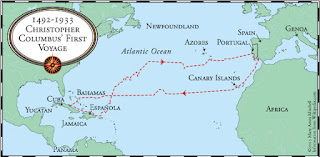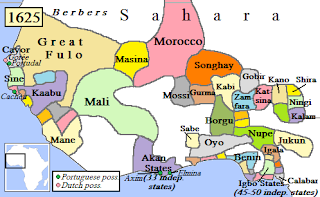The second nigerian republic: an insight toward a restart
The Second Republic was the republican government of Nigeria between 1979 and 1983 governed by the second republican constitution.
Following the assassination of Nigerian military Head of State, General Murtala Mohammed in 1976,
his successor General Olusegun Obasanjo initiated the transition process to terminate military rule in 1979. A new constitution was drafted, which saw the Westminster system of government (previously used in the First Republic) jettisoned for an American-style Presidential system. The 1979 constitution mandated that political parties and cabinet positions reflect the "federal character" of the nation � Political parties were required to be registered in at least two-thirds of the states, and each state was required to produce at least one cabinet member.
his successor General Olusegun Obasanjo initiated the transition process to terminate military rule in 1979. A new constitution was drafted, which saw the Westminster system of government (previously used in the First Republic) jettisoned for an American-style Presidential system. The 1979 constitution mandated that political parties and cabinet positions reflect the "federal character" of the nation � Political parties were required to be registered in at least two-thirds of the states, and each state was required to produce at least one cabinet member.
A constituent assembly was elected in 1977 to draft a new constitution, which was published on September 21, 1978, when the ban on political activity was lifted. In 1979, five political parties competed in a series of elections in which Alhaji Shehu Shagari of the National Party of Nigeria (NPN) was elected president. Obasanjo peacefully transferred power to Shagari, becoming the first head of state in Nigerian history to willingly step down. All five parties won representation in the National Assembly. In August 1983 Shagari and the NPN were returned to power in a landslide victory, with a majority of seats in the National Assembly and control of 12 state governments. But the elections were marred by violence and allegations of widespread vote rigging and electoral malfeasance led to legal battles over the results. In the widely monitored 1979 election, Alhaji Shehu Shagari was elected on the NPN platform. On October 1, 1979, Shehu Shagari was sworn in as the first President and Commander-in-Chief of the Federal Republic of Nigeria.
The first military intervention in Nigeria occurred in January
1966 when the civilian government was overthrown in a
military coup. This effectively marked the beginning and
succession of military governments in the nation's political
history. Military-rule continued till 1979 when the then Head
of State, General Olusegun Obasanjo handed over power to
the civilian government of President Shehu shagari.
A constituent assembly was elected in 1977 to draft a new
constitution, which was published September 21, 1978,
when the ban on political activity, in effect since the advent
of military rule, was lifted. Political parties were formed, and
candidates were nominated for president and vice president,
the two houses of the National Assembly, governorships,
and state houses of assembly. In 1979, five political parties
competed in a series of elections in which a northerner,
Alhaji Shehu Shagari of the National Party of Nigeria (NPN),
was elected president. All five parties won representation in
the National Assembly.
In August 1983, Shagari and the NPN were returned to
power in a landslide victory, with a majority of seats in the
National Assembly and control of 12 state governments. But
the elections were marred by violence, and allegations of
widespread vote rigging and electoral malfeasance led to
legal battles over the results.
On December 31, 1983, the military overthrew the Second
Republic. Maj. Gen. Muhammadu Buhari emerged as the
leader of the Supreme Military Council (SMC), the country's
new ruling body. He charged the civilian government with
economic mismanagement, widespread corruption, election
fraud, and a general lack of concern for the problems of
Nigerians. He also pledged to restore prosperity to Nigeria
and to return the government to civilian rule but was
stymied in his attempt to deal with Nigeria's severe
economic problems. Despite relative popularity for its no-
nonsense approach in tackling corruption, the Buhari
government was peacefully overthrown by the SMC's third-
ranking member, Army Chief of Staff Maj. Gen. Ibrahim
Babangida, in August 1985.
Babangida moved to restore freedom of the press and to
release political detainees being held without charge. As
part of a 15-month economic emergency, he announced
stringent pay cuts for the military, police, and civil servants
and enacted similar cuts for the private sector. Imports of
rice, corn, and wheat were banned. Babangida orchestrated
a national debate on proposed economic reform and
recovery measures, which reportedly convinced him of
intense opposition to an economic recovery package
dependent on an International Monetary Fund (IMF) loan.
Nigeria again witnessed another round of military
governments until 1993 when General Ibrahim Babaginda
the head of the military government, put in place an interim
civilian administration charged with conducting elections.
This interim administration lasted for only three months
when it was replaced in a palace coup by the military. The
new military administration was headed by General Sani
Abacha.
1966 when the civilian government was overthrown in a
military coup. This effectively marked the beginning and
succession of military governments in the nation's political
history. Military-rule continued till 1979 when the then Head
of State, General Olusegun Obasanjo handed over power to
the civilian government of President Shehu shagari.
A constituent assembly was elected in 1977 to draft a new
constitution, which was published September 21, 1978,
when the ban on political activity, in effect since the advent
of military rule, was lifted. Political parties were formed, and
candidates were nominated for president and vice president,
the two houses of the National Assembly, governorships,
and state houses of assembly. In 1979, five political parties
competed in a series of elections in which a northerner,
Alhaji Shehu Shagari of the National Party of Nigeria (NPN),
was elected president. All five parties won representation in
the National Assembly.
In August 1983, Shagari and the NPN were returned to
power in a landslide victory, with a majority of seats in the
National Assembly and control of 12 state governments. But
the elections were marred by violence, and allegations of
widespread vote rigging and electoral malfeasance led to
legal battles over the results.
On December 31, 1983, the military overthrew the Second
Republic. Maj. Gen. Muhammadu Buhari emerged as the
leader of the Supreme Military Council (SMC), the country's
new ruling body. He charged the civilian government with
economic mismanagement, widespread corruption, election
fraud, and a general lack of concern for the problems of
Nigerians. He also pledged to restore prosperity to Nigeria
and to return the government to civilian rule but was
stymied in his attempt to deal with Nigeria's severe
economic problems. Despite relative popularity for its no-
nonsense approach in tackling corruption, the Buhari
government was peacefully overthrown by the SMC's third-
ranking member, Army Chief of Staff Maj. Gen. Ibrahim
Babangida, in August 1985.
Babangida moved to restore freedom of the press and to
release political detainees being held without charge. As
part of a 15-month economic emergency, he announced
stringent pay cuts for the military, police, and civil servants
and enacted similar cuts for the private sector. Imports of
rice, corn, and wheat were banned. Babangida orchestrated
a national debate on proposed economic reform and
recovery measures, which reportedly convinced him of
intense opposition to an economic recovery package
dependent on an International Monetary Fund (IMF) loan.
Nigeria again witnessed another round of military
governments until 1993 when General Ibrahim Babaginda
the head of the military government, put in place an interim
civilian administration charged with conducting elections.
This interim administration lasted for only three months
when it was replaced in a palace coup by the military. The
new military administration was headed by General Sani
Abacha.
posted by: mw_O'Adebari
reference; wikipediA- the free encyclopedia





Comments
Post a Comment